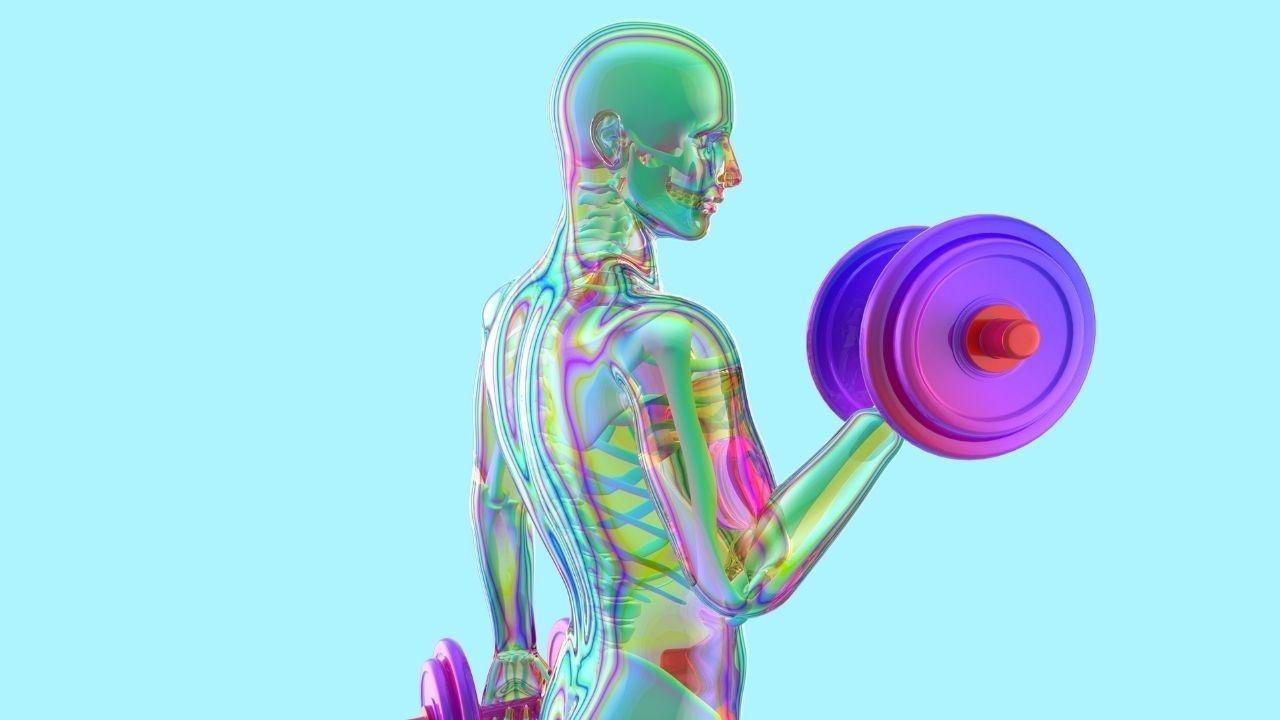
Post by : Mikhael Nasser
In the past, maintaining fitness often meant sticking to the same monotonous workout videos or generic diet plans. However, times have changed rapidly. Artificial Intelligence (AI) now plays a pivotal role in fitness, offering a more tailored, efficient, and practical approach.
From fitness trackers logging your heart rate to apps curating tailored workouts for your specific needs, AI has seamlessly woven itself into health routines. Think of it as having access to a personal fitness coach, dietary consultant, and wellness guide—all in one compact device.
So, in what ways does AI empower individuals to enhance their health, refine their eating habits, and optimize their workouts? Here are four significant ways AI is redefining fitness for everyone.
The primary flaw in traditional workout routines is their one-size-fits-all nature, which often doesn’t work for your unique circumstances. AI addresses this gap.
AI-enhanced fitness applications analyze your body metrics—age, weight, heart rate, and even sleep patterns—to formulate a custom workout plan. These programs are adaptive and continuously evolve based on your progress.
If you’re feeling exhausted or had an unsettled night’s sleep, your AI coach will adjust the intensity accordingly. Conversely, after a series of successful sessions, it could ramp up the difficulty.
For instance:
Apps like Fitbod, Freeletics, and Nike Training Club harness AI to customize workout sessions, adjusting with every performance review, emulating a human coach’s responsiveness.
To summarize:
AI empowers you to train intelligently, saving precious time while minimizing the risk of overexertion.
We’ve all heard the saying, “you are what you eat,” but determining what to eat can be a perplexing task. AI nutrition applications come into play here.
These tools monitor your dietary intake, assess your habits, and provide specific nutrient recommendations tailored to your body’s requirements. Some even enable you to snap a food picture to analyze its nutritional content instantly.
For example:
Popular apps such as MyFitnessPal, Yazio, and Lifesum utilize AI to shape your eating choices. If your carb intake spikes, the app might suggest lighter meal options nearby. If you’re lacking in protein, expect food suggestions that help rectify the deficiency.
AI also scrutinizes your eating patterns. If late-night heavy meals are your norm or you tend to skip breakfast, it aims to nudge you towards healthier habits.
The outcome:
Instead of rigid dieting, the focus shifts to a balanced, sustainable way of eating.
Your smartwatch is more than mere pedometer data; it serves as an advanced health monitoring tool powered by AI.
AI-infused fitness gadgets compile daily health metrics—including heart rate, oxygen saturation, sleep quality, and even stress levels—to identify potential irregularities before they become apparent.
If something seems amiss, such as elevated heart rate or poor sleep quality, the device sends out alerts. In certain instances, it may even recommend downtime or prompt medical consultation.
For example:
Wearables like the Apple Watch, Fitbit Sense, and Samsung Galaxy Watch incorporate sophisticated AI capabilities to detect early signs of cardiac or respiratory issues.
Why it’s essential:
AI offers preventive health measures rather than mere reactive solutions, akin to wearing a safety alert on your wrist.
Fitness isn’t solely focused on physical prowess; mental fortitude is equally vital. AI is making strides in keeping individuals inspired, dedicated, and focused.
Some applications even incorporate gamification, transforming fitness objectives into enjoyable challenges or games, awarding badges for workout milestones. Others deploy AI chatbots that act as supportive companions—guiding you through anxiety or maintaining focus.
For instance:
Applications like Calm, Headspace, and BetterMe engage AI to customize meditation or relaxation routines. They evaluate your mood and stress levels, recommending appropriate mindfulness exercises to enhance your well-being.
The takeaway:
AI not only builds physical strength but also fosters mental resilience and emotional balance.
AI isn’t a fleeting trend in fitness; it symbolizes the dawn of a transformative era. What sets AI apart is its ability to learn alongside you. It grows progressively smarter, observing your behaviors, habits, and preferences.
Imagine a future where your smartwatch prompts you to hydrate before you even realize you’re parched, or your fitness application constructs workouts based on energy levels or mood fluctuations. This is not mere speculation—it is unfolding right now.
AI is on the cusp of integrating all wellness facets—exercise, nutrition, sleep, and mental health—into a cohesive system. In the coming months, your device may not just track your activities; it will understand your lifestyle, leading you toward a healthier, well-rounded existence.
While AI excels in tracking, advising, and predicting, it lacks emotional capacity; it cannot provide the comfort and reassurance that a human can. The encouragement of a trainer or the concern of a doctor remains irreplaceable.
Thus, an optimal fitness journey combines AI and human support. Allow AI to manage your metrics and developments while relying on seasoned professionals to appreciate your aspirations, emotional states, and personal challenges.
AI isn’t about machines taking over—it’s a pathway to enhancing our lives, making it healthier and more efficient. By customizing workout strategies and foreseeing health concerns, AI has evolved into the fitness ally we never knew we needed.
It’s akin to having a coach, nutrition advisor, and motivator at your disposal around the clock—all working in harmony for your health.
Keep in mind, though, that technology is only as effective as your commitment. AI equips you with insights and tools, yet it’s your diligence and perseverance that turn aspirations into reality.
The future of fitness centers around not merely doing more; rather, it's about engaging in what’s best suited for you—with the aid of intelligent, supportive technologies.
This article serves exclusively for general informational and educational aims. It intends to share insights into AI’s influence on the fitness and wellness realm but should not substitute for professional medical, nutritional, or fitness counsel. Individual body types, health concerns, and fitness ambitions vary; what benefits one individual may not suit another.
Prior to embarking on a new workout regime, dietary strategy, or health plan—particularly if you have preexisting health conditions, injuries, or unique health concerns—consultation with a certified physician, nutritionist, or fitness expert is highly recommended. The details here should not be interpreted as diagnostic, treatment, or preventive advice. Results from AI-driven fitness tools and applications may vary according to lifestyle choices, commitment, and personal health considerations.
Readers are invited to utilize this information responsibly and alongside professional guidance to pave a secure and effective path toward health and fitness.










Rashmika Mandanna and Vijay Deverakonda to Tie the Knot on February 26
Rashmika Mandanna and Vijay Deverakonda are set to marry in an intimate Udaipur ceremony on February

FIFA Upholds 2026 World Cup Ticket Pricing Despite Fan Dissatisfaction
FIFA defends its ticket pricing for the 2026 World Cup, introducing a $60 tier to enhance affordabil

Trump Asserts Role in India-Pakistan Conflict Resolution, India Refutes Claims
Trump asserts he facilitated peace between India and Pakistan, but India firmly denies any US involv

Telangana Women Tragically Killed in California Car Accident, Families Request Assistance
Two Telangana women in the US die in a tragic car crash, prompting families to seek government suppo

Dhurandhar Achieves Remarkable Success, Surpassing ₹1100 Cr Worldwide
Ranveer Singh's Dhurandhar continues its box office dominance, crossing ₹1100 crore globally and sur

Asian Markets Climb as Dollar Weakens and Silver Surpasses $80 on Rate Cut Anticipation
Asian equities hit six-week highs while silver crosses $80, buoyed by expectations of Federal Reserv